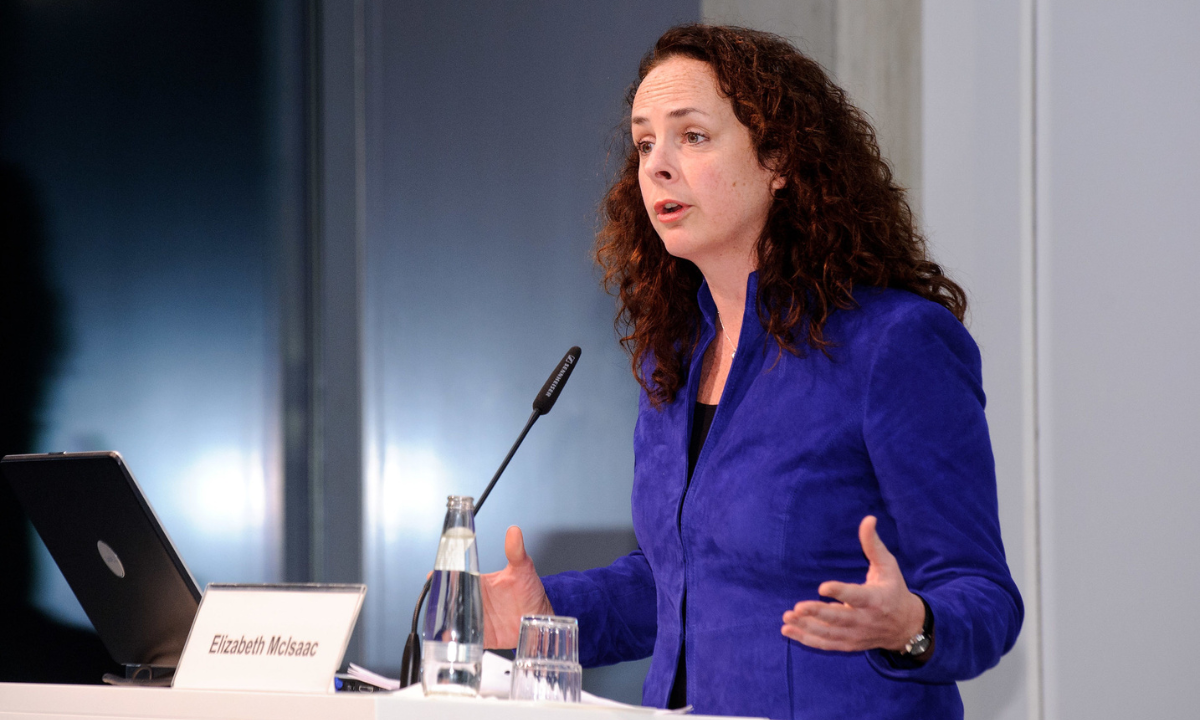Maytree accuses feds of potentially violating Charter, human rights laws over cuts to refugee housing funding
Why It Matters
Two years after hundreds of refugees were left sleeping on Toronto city streets, funding for the Interim Housing Assistance Program has been reduced by the federal government. However, while funding has been reduced, so has the number of asylum claims. It's obvious a multi-pronged solution is needed.

An advocacy group in Toronto has accused the federal government of potentially violating the Charter rights of refugees by reducing funding to a major housing program.
Maytree, an advocacy group dedicated to reducing poverty, wrote an open letter to federal immigration minister Lena Diab on Wednesday, urging Diab to reconsider the $107M funding reduction to the Interim Housing Assistance Program.
“Toronto lacks the fiscal flexibility to assume the additional costs of maintaining these services,” reads the letter.
“Your action, therefore, jeopardizes shelter access for thousands of refugees in Toronto, amounting to a violation of both international and domestic human rights law.”
The group says the reduction in funding could violate the National Housing Strategy Act, the Canadian Charter of Rights and Freedoms, and international human rights law if refugees in Toronto do not have adequate shelter this year.
The letter is signed by Elizabeth McIssac, Maytree’s president and Chair of Toronto’s Housing Rights Advisory Committee.
“Our country can afford dignified shelter for refugees. This is not an issue of jurisdiction or even of money. This is fundamentally about people and whether we are willing to stand up and protect human dignity for all,” she wrote.
A spokesperson for Minister Diab said the program, meant to be temporary, was expanded last year to provide $1.1 billion in costs for the following three years, and the department expects the number of asylum claims to continue to fall.
“While asylum volumes remain high, the number of asylum claims from January to July of this year are about one-third lower than asylum claims from the same period last year,” said Isabelle Dubois.
“Through the 2024 Budget and through direct communication with stakeholders, IRCC (Immigration, Refugees and Citizenship Canada) made it clear that program criteria would be adjusted to reflect a renewed focus on helping partners develop more sustainable and cost-effective long-term housing solutions.”
Refugee housing: Whose responsibility?
The open letter comes after Toronto Mayor Olivia Chow warned her fellow councillors in August that the city faced a $107 million shortfall to continue to house refugees in emergency shelters.
In a letter she sent to councillors, she said the federal government would provide only 26 per cent of the funding they requested through the program.
In previous years, the program reimbursed up to 95 per cent of the city’s costs for refugee emergency response.
“As you know, providing safe shelter for refugee claimants is a federal responsibility and the city and province cannot shoulder the cost,” Chow said in the letter.
In 2023, Toronto’s shelters became overwhelmed, at one point turning away up to 300 people daily, according to a CBC news report.
This led to hundreds of people, including refugees, spending their nights sleeping in front of churches and shelters.
According to the federal government, in September 2023, refugees in six provinces were being housed in nearly 3,500 hotel rooms.
Former Prime Minister Justin Trudeau apologized at the time, calling the situation “unacceptable.” Around the same time, the Ontario and federal governments announced a top-up to their shared housing benefit.
While the situation eased, this year’s shortfall could leave 1,800 refugee claimants without shelter, according to a briefing note sent to Toronto city councillors last month.
A solution will take a multi-faceted approach
Solving the problem isn’t as easy as throwing money at churches and non-profits serving refugees.
In 2022, the Ontario Coalition of Service Providers for Refugee Claimants noted numerous refugee housing barriers, including immigration delays, social assistance rates and inadequate shelter capacity.
They called for a two-pronged approach, including a large increase to emergency shelter and temporary housing capacity, and targeted investments to improve access to housing when refugees arrive.
Those investments should include increased service levels at CBSA and IRCC for timely refugee claims and work permit applications, “a meaningful increase to monthly social assistance rates” and a public education campaign tackling rental housing discrimination.
“These are individuals and families arriving in search of safety and protection, and we simply must not add to their suffering by refusing the fundamental human right for safe shelter,” said the coalition.
MPP Jessica Bell has called on the Ontario government to help by reinstating the Physician and Hospital Services for Uninsured Persons program, which ended after the COVID-19 pandemic, and financing and building at least 250,000 “deeply affordable” homes.

